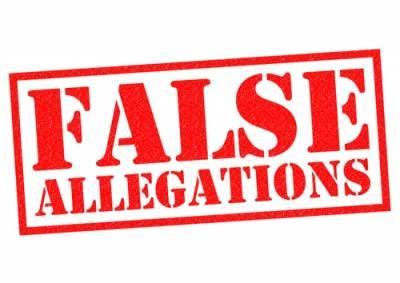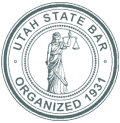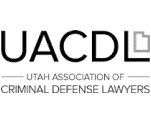Recent Blog Posts
What Are Examples of Aggravating Factors in Utah Sex Crimes?
 Sex crimes are taken very seriously in Utah, and when certain aggravating factors are present, they can enhance the severity of the offense and increase the potential penalties faced by the defendant. Familiarizing oneself with these aggravating factors can provide a clearer understanding of the legal implications associated with sex crimes in Utah. If you have been charged with a sex crime, hire a criminal defense attorney to ensure you have the legal representation you need during this perilous time.
Sex crimes are taken very seriously in Utah, and when certain aggravating factors are present, they can enhance the severity of the offense and increase the potential penalties faced by the defendant. Familiarizing oneself with these aggravating factors can provide a clearer understanding of the legal implications associated with sex crimes in Utah. If you have been charged with a sex crime, hire a criminal defense attorney to ensure you have the legal representation you need during this perilous time.
Non Consensual Conduct
Engaging in sexual activity without the consent of the individual is a fundamental aggravating factor in many sex crime cases. Lack of consent highlights a violation of the individual’s autonomy and personal boundaries, which will be taken into account during the legal proceedings.
Age of Individual
In Utah, if the individual who the sex crime was perpetrated against is particularly vulnerable due to their age, such as being under 14 years old, it is considered an aggravating factor. Crimes against minors often carry heightened penalties to ensure their protection and well-being.
Understanding the Role of Substance Amounts and Paraphernalia in Intent to Distribute Charges
 The intent to distribute drugs is a serious offense that involves proving an individual’s intention to distribute illegal substances. Apart from other crucial factors, the amount of substances found and the presence of paraphernalia, such as bags and scales, play a crucial role in establishing intent. Today, we will explore how these aspects may demonstrate the intent to distribute drugs. If you have been charged with a serious drug crime such as this, contact an experienced criminal defense attorney today to ensure the protection of your rights.
The intent to distribute drugs is a serious offense that involves proving an individual’s intention to distribute illegal substances. Apart from other crucial factors, the amount of substances found and the presence of paraphernalia, such as bags and scales, play a crucial role in establishing intent. Today, we will explore how these aspects may demonstrate the intent to distribute drugs. If you have been charged with a serious drug crime such as this, contact an experienced criminal defense attorney today to ensure the protection of your rights.
The Importance of Substance Amounts
The amount of drugs possessed is a significant factor in determining the intent to distribute.
Legislators and law enforcement agencies pay attention to large quantities of controlled substances as they suggest a purpose beyond personal use. If the amount exceeds what is typically associated with personal consumption, it can be seen as evidence of an intent to supply or sell.
Should I Seek a Plea Bargain in My Sex Crimes Case or Fight the Charges?
 If you have been charged with a sex crime, the decision of whether to seek a plea bargain or fight the charges can be difficult. Sex crimes are charged very seriously, and penalties can be devastating if found guilty. If you are facing sex crimes charges, it is essential to contact an experienced criminal defense lawyer to obtain the legal representation you need to tactfully guide you through the legal process, all the while seeking a case outcome in your favor.
If you have been charged with a sex crime, the decision of whether to seek a plea bargain or fight the charges can be difficult. Sex crimes are charged very seriously, and penalties can be devastating if found guilty. If you are facing sex crimes charges, it is essential to contact an experienced criminal defense lawyer to obtain the legal representation you need to tactfully guide you through the legal process, all the while seeking a case outcome in your favor.
Here Are Some Considerations to Help Guide Your Decision
Reasons someone may seek a plea bargain include the following:
-
A plea deal typically results in lesser charges and penalties. In many cases, accepting a plea deal will lead to a lighter sentence than would have been imposed if you were found guilty after a full trial. This is especially true if the evidence against you is strong or you possess a criminal record.
Understanding Metabolite DUIs in Utah
 A metabolite DUI is a category of DUI offenses relating to the presence of drugs or their metabolites in a driver’s bloodstream. Utah is one of the few states that consider driving with any amount of drugs or metabolites in their body as unlawful. Therefore, a metabolite DUI charge is possible in Utah even when a driver has not engaged in driving while impaired. In other words, you can be charged with metabolite DUI even if you are completely sober.
A metabolite DUI is a category of DUI offenses relating to the presence of drugs or their metabolites in a driver’s bloodstream. Utah is one of the few states that consider driving with any amount of drugs or metabolites in their body as unlawful. Therefore, a metabolite DUI charge is possible in Utah even when a driver has not engaged in driving while impaired. In other words, you can be charged with metabolite DUI even if you are completely sober.
Due to the possibility of unusual circumstances surrounding a metabolite DUI, those charged may have many questions. To protect yourself legally against the charge, contact a criminal defense attorney sooner rather than later to understand fully what you are up against.
Unpacking Metabolite DUIs
Under Utah law, a controlled substance is any drug or chemical listed in the state’s schedules of controlled substances, such as marijuana, cocaine, or heroin, as well as prescription medications like opioids and benzos. When a person ingests a controlled substance, their body breaks it down into various metabolites. These metabolites can linger in the person’s bloodstream for a period after the drug’s effects have worn off. Sometimes, a person may test positive for metabolites of a controlled substance even if they have not recently used it.
Does Utah Have Serious Drug Laws?
 There is no question that drug laws in the United States can vary considerably from state to state. Each state, including Utah, has its own set of statutes and penalties regarding certain drug offenses. However, Utah does have strict drug laws in an attempt to dissuade people from using such substances. Today, we are going to explore Utah drug crimes and see what offenses like drug possession and possession with intent to distribute mean for those convicted. If you are facing drug charges in Utah, hire a criminal defense lawyer, as your freedom may be in serious jeopardy.
There is no question that drug laws in the United States can vary considerably from state to state. Each state, including Utah, has its own set of statutes and penalties regarding certain drug offenses. However, Utah does have strict drug laws in an attempt to dissuade people from using such substances. Today, we are going to explore Utah drug crimes and see what offenses like drug possession and possession with intent to distribute mean for those convicted. If you are facing drug charges in Utah, hire a criminal defense lawyer, as your freedom may be in serious jeopardy.
What Are the Laws Regarding Drug Possession in Utah?
Utah has strict drug possession laws that are enforced rigorously. Drug possession means possessing controlled substances, such as marijuana, methamphetamine, cocaine, or heroin, for personal use. For the first and second time you are charged with drug possession, both will likely be considered a Class A misdemeanor. If convicted of a Class A misdemeanor, you may be imprisoned for one year and receive a $2,500 fine. If you are charged a third time with drug possession, it will likely be categorized as a third-degree felony, bringing with it a potential five-year prison sentence and fines of $5,000.
What Are the Consequences of One or More DUI Offenses in Utah?
 In Utah, driving under the influence (DUI) is a grave offense, as is true across virtually all of the United States. For drivers who are repeat-DUI offenders, the results of a conviction can be downright devastating. If you have already been convicted of at least one DUI in the past and you have been charged with another, you need to consider your legal options very seriously, as you are in extreme legal peril. Contact a DUI lawyer to ensure you have an advocate by your side as you face these severe charges.
In Utah, driving under the influence (DUI) is a grave offense, as is true across virtually all of the United States. For drivers who are repeat-DUI offenders, the results of a conviction can be downright devastating. If you have already been convicted of at least one DUI in the past and you have been charged with another, you need to consider your legal options very seriously, as you are in extreme legal peril. Contact a DUI lawyer to ensure you have an advocate by your side as you face these severe charges.
First and Second Offense DUIs in Utah
In Utah, the legal limit for blood alcohol content (BAC) is 0.05 percent. If a driver is stopped and is found to have a BAC over the legal limit, they can be arrested and charged with DUI. The penalties for a first-time DUI offense in Utah may include fines, a loss of driving privileges, jail time, community service, alcohol treatment programs, and more. Then, suppose you are arrested for a second DUI within ten years. In that case, the charge is escalated from a Class B misdemeanor to a Class A misdemeanor, requiring the accused to spend a minimum of five days in jail, enhanced fines, and required supervised probation.
Understanding the Reasons Why Someone Would Falsely Accuse Another Person of a Sex Crime
 Falsely accusing someone of a sex crime is a serious offense, and it can have severe consequences for both the accused and the accuser. Unfortunately, false accusations of sex crimes are not uncommon, and there are several reasons why someone might make an accusation. If you have been falsely accused of committing a sex crime, you must hire legal counsel immediately. Sex crimes are prosecuted aggressively and can have a devastating effect on someone’s life, even if they are able to avoid a conviction.
Falsely accusing someone of a sex crime is a serious offense, and it can have severe consequences for both the accused and the accuser. Unfortunately, false accusations of sex crimes are not uncommon, and there are several reasons why someone might make an accusation. If you have been falsely accused of committing a sex crime, you must hire legal counsel immediately. Sex crimes are prosecuted aggressively and can have a devastating effect on someone’s life, even if they are able to avoid a conviction.
Why Do False Accusations of Sex Crimes Occur?
First and foremost, false accusations of sex crimes are often motivated by revenge or spite. In some cases, the accuser may be angry at the accused for some reason, such as a perceived slight or rejection. They may make a false accusation to get back at the accused.
Another common reason for false accusations of sex crimes is attention-seeking. Some people crave attention and will go to great lengths to get it, including making false accusations. They may feel that making such an accusation will bring them attention and sympathy for others.
What to Do if You Have Been Wrongfully Charged with a Sex Crime in Utah
 Being charged with a sex crime can be a frightening and overwhelming experience. In Utah, as is true in virtually every state, sex crimes are prosecuted extremely aggressively. As a result, if you have been charged with a sex crime in Utah, you must take immediate action to ensure your rights are protected and that you can obtain the best possible legal representation.
Being charged with a sex crime can be a frightening and overwhelming experience. In Utah, as is true in virtually every state, sex crimes are prosecuted extremely aggressively. As a result, if you have been charged with a sex crime in Utah, you must take immediate action to ensure your rights are protected and that you can obtain the best possible legal representation.
Here is What You Should Do Immediately
Here are some steps you should take if you have been charged with a sex crime in Utah, including:
-
Seek legal advice – The first thing you should do if you have been charged with a sex crime is to seek legal advice from a qualified criminal defense attorney. Your criminal defense attorney will walk you through the legal process while advocating for your best interests.
-
Remain silent – It is important to remember that anything you say to law enforcement or prosecutors can be used against you in court. Therefore, as soon as you have been charged with a sex crime, you should exercise your right to remain silent and not speak with law enforcement or prosecutors without an attorney present.
What is a Plea Deal, and Why May it Be Relevant to My Criminal Case?
 A plea deal, sometimes called a plea bargain or plea agreement, is a legal arrangement between the defendant and the prosecution in a criminal case. It involves the defendant agreeing to plead guilty to a lesser charge or one of several charges in exchange for concessions from the prosecutor. Plea deals can be a strategic option for defendants and prosecutors, as they can save time and resources and avoid the uncertainty of going to trial. Today, we will further explore the concept of a plea deal and why such a deal may be relevant to your criminal case. Remember, if you are facing criminal charges, contact a criminal defense attorney to understand your legal rights and options moving forward.
A plea deal, sometimes called a plea bargain or plea agreement, is a legal arrangement between the defendant and the prosecution in a criminal case. It involves the defendant agreeing to plead guilty to a lesser charge or one of several charges in exchange for concessions from the prosecutor. Plea deals can be a strategic option for defendants and prosecutors, as they can save time and resources and avoid the uncertainty of going to trial. Today, we will further explore the concept of a plea deal and why such a deal may be relevant to your criminal case. Remember, if you are facing criminal charges, contact a criminal defense attorney to understand your legal rights and options moving forward.
Further Explaining What a Plea Deal Is
A plea deal is an agreement between the defense and the prosecution in which the defendant pleads guilty or no contest to one or more charges in exchange for a more lenient sentence, reduced charges, or other concessions. Plea deals are often negotiated between the defense attorney and the prosecutor, and a judge must approve them. For the sake of this blog, we will be discussing three types of plea deals, including:
Why Would Someone Ever Confess to a Crime They Did Not Commit?
 False confessions have been a perplexing phenomenon in the criminal justice system for decades. Despite the prevalence of DNA evidence exonerating wrongly convicted individuals, false confessions remain a significant factor in wrongful convictions. Research has shown that false confessions occur for a variety of reasons, and understanding these reasons is critical to preventing wrongful convictions. Today, we will discuss the possible reasons as to why someone would ever confess to a crime they did not commit. Remember, if you are charged with a crime, contact a criminal defense attorney to understand your legal options moving forward.
False confessions have been a perplexing phenomenon in the criminal justice system for decades. Despite the prevalence of DNA evidence exonerating wrongly convicted individuals, false confessions remain a significant factor in wrongful convictions. Research has shown that false confessions occur for a variety of reasons, and understanding these reasons is critical to preventing wrongful convictions. Today, we will discuss the possible reasons as to why someone would ever confess to a crime they did not commit. Remember, if you are charged with a crime, contact a criminal defense attorney to understand your legal options moving forward.
Why Does it Happen?
One reason innocent individuals confess to crimes is police interrogation tactics. Police may use high-pressure tactics such as sleep deprivation, manipulation, or even physical force to extract a confession from a suspect. Fear, intimidation, and coercion can lead innocent individuals to confess to crimes they did not commit to end the interrogation and go home. Moreover, some individuals may feel pressure to confess crimes to protect someone they care about or avoid harsher punishment for a lesser offense.

 385-777-2753
385-777-2753










